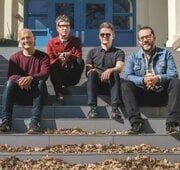New York, NY (Top40 Charts) Starting an online gambling business is easier than ever — at least when it comes to the tech side. Turnkey platforms, ready-made games, and crypto payment tools are all within reach. But there's one piece that still trips up new operators: licensing. Where can you legally launch, without spending a fortune or waiting months to go live?
For years, Curacao has been the go-to jurisdiction for first-time gambling operators. And in 2025, it still holds that position. Getting a Gambling license in Curacao is one of the most affordable and efficient ways to enter the market legally — especially if you're just starting out. While other countries are tightening rules or raising entry barriers, Curacao continues to support fast, lean launches that don't require a million-dollar legal team.
What Makes Curacao Attractive
The main draw is simplicity. The application process is straightforward. You don't need to open a local office, and the documentation required is manageable. For a startup with limited funding and a small team, this alone makes a difference.
Costs are another factor. Licensing in Curacao is more affordable than in Europe or North America. Application fees, ongoing payments, and compliance costs are lower. You can build your MVP, test your product with real users, and start generating revenue — all while staying within a startup-friendly budget.
Speed Matters When You're Small
Let's say you've developed a working platform, or you've partnered with a white-label provider. You're ready to go. The last thing you want is to wait six to twelve months just to get licensed. With Curacao, timelines are much shorter. Many operators are able to start within a few weeks of submitting their application.
This kind of speed gives smaller teams an edge. You don't burn through funds while waiting. You can start collecting data, building a user base, and refining your features. And if your platform includes something experimental — like crypto deposits or prediction games — Curacao's flexible structure gives you room to test and adjust.
Not Just for Hobby Projects
There's a misconception that Curacao licenses are only for short-term or low-quality projects. That's outdated. Many serious businesses start with Curacao because it lets them launch, learn, and grow before transitioning to stricter jurisdictions.
Plenty of platforms continue operating successfully under a Curacao license for years. Others use it as a first step, later expanding into Europe or Africa with additional licenses. Either way, it's a useful tool — not a dead-end.
International Access and Reputation
While Curacao's license is considered "offshore," it still carries weight. It's recognized by most payment providers, many ad networks, and even investors who understand the online gambling landscape. It doesn't give you global access by default — no license does — but it gives you a credible base to work from.
If your goal is to reach users in multiple regions, Curacao helps you get moving. You'll still need to comply with local laws in each market, but you're no longer stuck in legal limbo.
Flexibility for Modern Platforms
One reason Curacao works well for newer operators is that it doesn't force your platform into a narrow definition. If you're building something that combines games of chance with social features, or you're integrating crypto tokens and peer challenges, it might not fit into traditional gambling categories.
Some jurisdictions don't know what to do with that kind of hybrid. Curacao, by contrast, is used to flexible models. As long as your platform follows basic rules — like age restrictions, anti-money laundering compliance, and game fairness — you can usually operate without reworking your core idea to fit someone else's mold.
What to Keep in Mind
Of course, no license is perfect. Curacao has fewer reporting requirements than other regulators, but that doesn't mean you can ignore compliance altogether. You still need to follow KYC procedures, ensure fair gameplay, and avoid marketing in blacklisted regions.
Another point: some markets — like the UK or certain EU countries — won't recognize Curacao licensing on its own. If you want to operate there long-term, you'll need to apply for additional licenses. But as a launchpad, Curacao still gets you from idea to execution faster than most.
Final Thought
If you're starting small, moving fast, and trying to prove your concept without burning through cash, a Gambling license in Curacao makes sense. It offers structure without bureaucracy, affordability without cutting corners, and legal coverage without endless delays.
In 2025, with the gambling market more competitive than ever, speed and flexibility aren't luxuries — they're survival tools. For first-time operators, Curacao remains one of the smartest ways to enter the game.
























